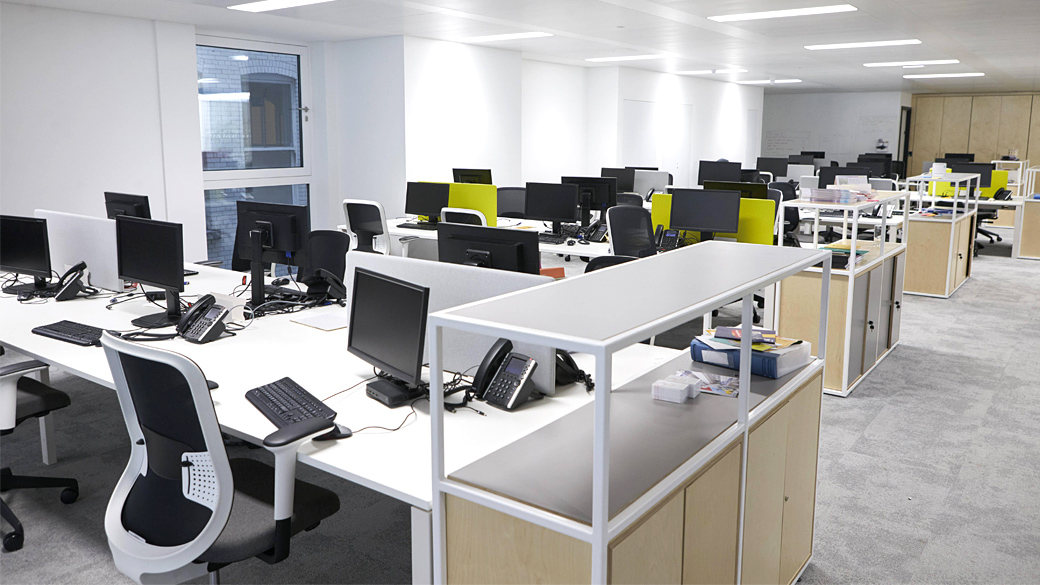
Many companies still have to find out what kind of spaces they will need in the future. The vast majority see potential for optimization in their existing offices.
No more than 14% of office tenants are fully satisfied with their space. According to a global survey by Urban Land Institute (ULI) and The Instant Group, only one in seven office tenants say: My existing offices are fully helping me achieve my business goals.
The working world is in upheaval: many companies are looking for their office concept of the future, others have already put their money where their mouth is – and are renting offices or at least looking for subtenants.
In any case, owner-occupiers and tenants are scouring their existing portfolios. Because – and this is the good news: for the time being, for most companies the office retains its role as a haven of corporate culture, as a place of tangible, non-media-mediated exchange and instruction for new and especially young colleagues.
The bad news for many existing landlords: According to a recent study by the ULI and The Instant Group, a digital marketplace for flexible office space, only 14% of tenants have already found spaces that perfectly suit them, their business goals and strategies. Conversely, 86% are – at least potentially – searchers. However, this can also present opportunities for landlords and, not least, project developers.
Currently, only 15% of tenants expect a reduction in space…
This space reorganisation does not necessarily have to go hand in hand with a reduction in space: Only 15% of the office tenants surveyed expect their space requirements to shrink within five years – even if it may no longer be necessary to provide a (separate) desk for each employee. A few – but still – even assume that their hunger for space will increase because a) they want to offer their employees the right space for every activity (concentrated quiet work, meeting rooms, event areas, meeting places for spontaneous and unprotected exchange, etc.) and b) additional amenities are to find their way into the office building that make the employees’ stay longer and, if possible, more productive: Catering, fitness rooms, childcare.
…but landlords are expecting major cuts
However, the authors of the study warn that the fact that no more than 15% of office tenants currently expect to reduce their office space should be taken with a grain of salt: “This is a statement fraught with great uncertainty, because many occupiers still have to figure out what their future space requirements will be”.
In any case, landlords expect worse: 60% predict a “slight” reduction in the office space footprint of the average tenant in the next five years. Another 22% even fear that this footprint will decrease “significantly”.
Property valuers should take account of the flexibilisation of the world of work
According to the study, it is already becoming apparent that tenants are attaching more importance to shorter, more flexible rental contracts or rental contract periods and breathing space, and are more often flirting with use-dependent services such as the use of meeting rooms, event spaces, fitness facilities, etc. They have also expressed a willingness to pay for such amenities – just not within the traditional rental contract but according to use (pay per use). They would also have expressed their willingness to pay for such amenities – just not within the classic rental contract, but according to use (pay per use).
However, building owners worry, this could have a negative impact on valuations: almost two-thirds (62%) of landlords expect a decline in the capital values of their properties given “the current valuation model, which only recognises long-term leases”, the survey says. And they demand: Valuers would have to recognise the value of additional and separately billed services and learn to understand the role of the office landlord in future more as that of an operator and the office as an operator property along the lines of a hotel: with a high turnover, fluctuating occupancy rates and customers with highly flexible wishes.